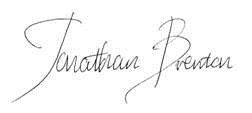- Daily & Weekly newsletters
- Buy & download The Bulletin
- Comment on our articles
History & reconciliation: engaging a new generation
In a week where a Belgian and a British scientist won a Nobel Prize for parallel work in atomic physics, this year’s Belgo-British Conference will be asking Belgo-British brainpower to consider another challenge: how we should respond to the challenges of the upcoming First World War Centenary.
History binds Belgium and Britain together. It was the London Conference of 1830 which confirmed Belgium’s independence. Since then, the UK and Belgium have always been strong allies; standing together in two Worlds Wars and in NATO campaigns, such as Afghanistan and Libya. As a mark of respect to King Albert’s courageous resistance in 1914, Belgium is the only country which has the right to march at the Cenotaph in London.
Upcoming anniversaries will throw up some challenging questions. How do we ensure that a new generation – whatever its age – knows Europe’s recent history? Are some of the clichés around the First World War – the Blackadder view of an absurd struggle in the trenches – an easy way for later generations to condescend to their predecessors?
What is the First World War’s relevance to a Europe struggling with the hot conflicts of the Arab Spring? The anniversary of the first use of chemical weapons will have a terrible resonance following this year’s attacks in Syria. The anniversary of the Sarajevo assassination in 1914 will sit awkwardly in a contemporary Bosnia trying to come to terms with 1990s conflicts.
How do we get the balance right between remembering the sacrifice of individual life – which is where commemoration often begins – and thinking of the historical forces behind the conflict?
And how do we manage historical tourism – which is a good thing – but brings risks ranging from the over-visiting of certain war cemeteries to the commercialisation of history? What does our difficulty in understanding the thousands of soldiers who volunteered for battle in 2014 tell us about our own attitudes to conflict in contemporary Europe?
It is questions like these which led us to choose History and Reconciliation as the theme for this year’s Belgo-British Conference. Today and tomorrow, Belgo-British brains from the realms of education, culture, sports, media, politics, and diplomacy will gather in London to consider them.
Belgian and British governments are already committed to commemoration. We continue to recognise that the liberties and prosperity we enjoy today were created by past sacrifices. We cherish the fact that commemoration brings people from the UK and Belgium (and other countries) together. As British Ambassador I am always touched by the commitment of people in Belgium to honour the dead.
Plans are under way for a remembrance event on 4th August 2014 in Mons – in a cemetery where roughly half the soldiers are German, and roughly half British. On 11th November, The Duke of Edinburgh will come to Ypres to take part in a ceremony involving school children from both sides of the Channel in support of the Flanders Fields memorial garden in London.
But 2014-18 is not just for governments. We also need other actors and other projects to encourage new generations to engage.
As Christmas Truce football matches in December 2014 will show, the world of sport will have a role to play.
Innovative museums will help us see history afresh. The British Museum is holding an exhibition that looks at the relationship between the UK and Germany over three centuries in order to show that 50 years of enmity was an anomaly in a long friendship. Art museums in Brussels will shortly open new exhibition space focusing on Fin de Siècle – the time before war as Europe - in the words of one historian - slept-walked its way to conflict.
The challenge of engaging new generations will be helped by an approach to commemorations which is inclusive. We need to recognize that people from all over the world – the Chinese labourer or the Moroccan soldier – were touched by the war.
As the example of British nurse Edith Cavell shows – the experience of war included occupation as well as trench warfare, and affected women as well as well as men. It was about survival and continuation as well as extinction.
And most of all we need historians who have the freedom to challenge us.
In a globalised, mediatised world, we can be sure that the centenaries of the First World War will be major events. The danger is that we miss the opportunities for the right kind and the right depth of engagement. We hope that this week’s Belgo-British Conference will help to reduce that risk.

Engage with the Conference via Twitter using hashtag #BelgoBrit
Click here to look at this year’s Conference programme
Click here for more information on the history of the Conference

















